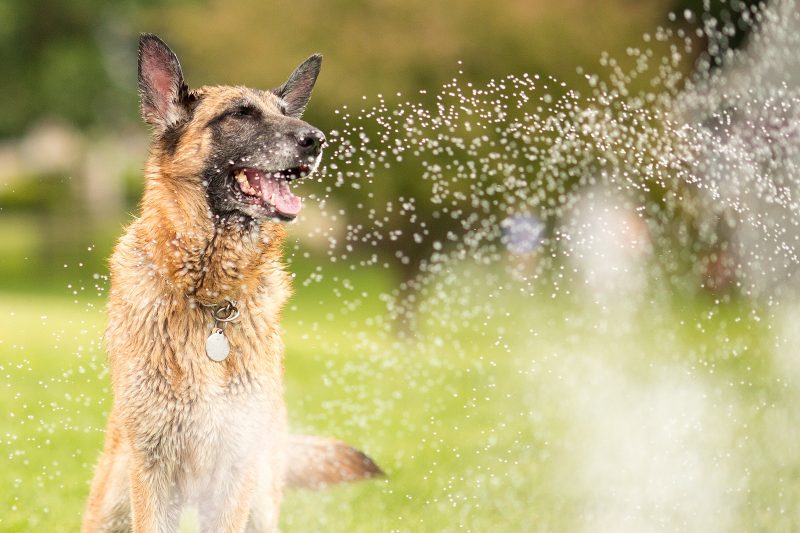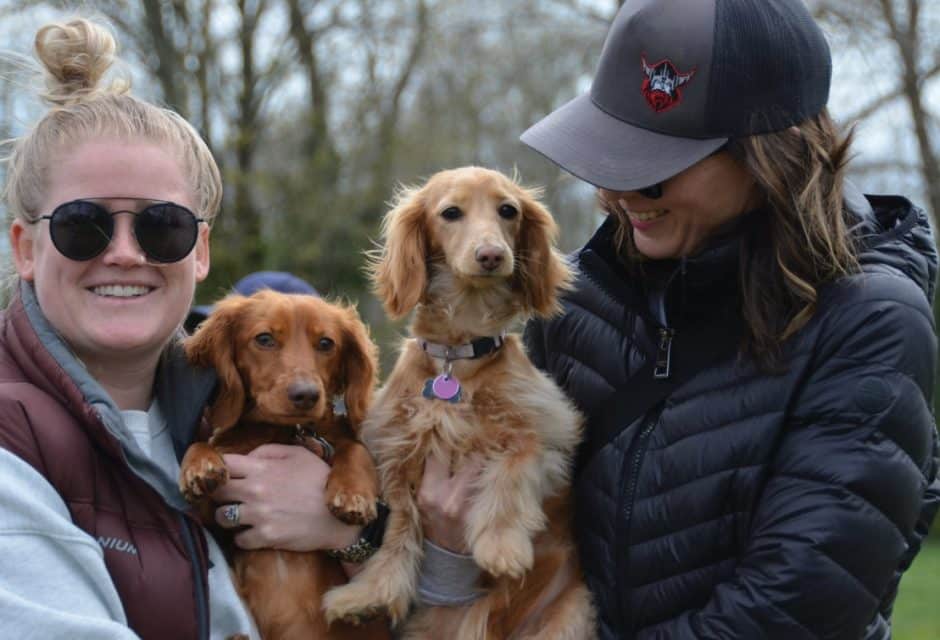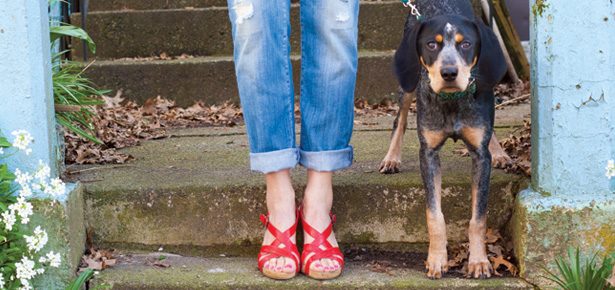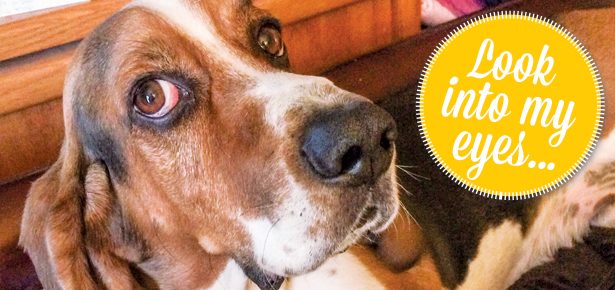

Are You Looking for The “Best Dog Breeder Near Me”?
How to make sure your new puppy is coming from a responsible breeder
Have you been on the the lookout for the best dog breeder near me? Before you pick a dog breeder read this first!
Your co-worker tells you about the puppy she's getting and inwardly you cringe—you're pretty sure that the pup is not coming from a responsible breeder. But how do you know for sure? And what should you tell your friends, family, and co-workers to look out for?
If you decide to get your new puppy from a breeder, it is so important to do your homework first—you want to make sure you are getting your puppy from a responsible breeder who is deeply dedicated to their breed. If you end up accidentally buying your puppy from an irreputable breeder, not only could you inadvertently end up supporting a puppy mill that churns out unsound puppies and keeps their breeding dogs in horrific conditions, but your new pup could suffer from serious health problems. We asked the Canadian Kennel Club for a checklist of what to look for in a responsible breeder.
The CKC Good Breeder Check List
1. Visit the kennel before buying the puppy.
A responsible breeder welcomes prospective puppy owners into their home or kennel facility to meet their dogs and, age permitting, their puppies. Your visit may occur once puppies are born or, often, months before. Whether in the breeder’s home or in a kennel, the space should be clean with adequate room for the dogs, puppies, and people. Dogs should appear healthy and well-cared for and not exhibit any signs of fear or aggression. Many breeders do not allow visitors for a period of time after puppies are born so don’t expect to meet newborn puppies—they need enough time for their immune systems to develop before receiving visitors. After the waiting period, you’ll be able to meet the puppies and their mom, who should play a major role in rearing her puppies until their new families take over. The puppies’ father won’t always be available for the visit as breeders quite often breed to stud dogs owned by other breeders, so don’t be too disappointed if he isn’t there.
Warning signs:
- Breeder discourages your visit
- Breeder offers to sell the puppy sight unseen
- Full kennel access is restricted
2. Make certain the dam (puppy’s mother) is on-site and available for you to see.
This is essential since the mother should be present with a new litter. A reputable breeder will also have an official kennel club pedigree, such as the CKC or AKC, that includes the name and registration numbers of the parents, grandparents, and great-grandparents as well.
Warning signs:
- Breeder does not have the puppy's mother on premises
- Breeder cannot provide the pedigree
3. Ask for health and genetic testing results.
One of a breeder’s primary goals should be to breed healthy, balanced, and sound puppies. One of the ways to achieve this is to carry out health and genetic testing. A responsible breeder will ensure their dogs are tested by veterinary specialists to reduce and/or eliminate the possibility of passing on inherited health issues to the next generation. Most breeds have a national club that has a list of health tests that are recommended for their breed and expect their breeder members to carry out such testing on their dogs. Ask to see the results of health tests for both the dam and the sire of your potential puppy’s litter, as well as for previous generations.
………………………………………………………………………………………………………………………
WARNING SIGNS
- They won’t let you see where the puppy and mom live. A responsible breeder will encourage you to visit and spend time with the mama dog and pups, once they are old enough for visitors.
- The area where the dogs spend their time is dirty or the dogs are continually confined to cages. Quarters should be clean and comfortable and suited to the breed.
- The puppies or mom look dirty, unkempt, lethargic or unwell.
- They breed many types of dogs and have many litters available. Most responsible breeders will breed only one or a few types of dogs.
- They sell to pet stores or unknown buyers over the internet.
- The breeder asks no questions before agreeing to sell you a puppy. A good breeder will want to know where you live, what you do, and where and with whom the puppy will be spending her time. Most reputable breeders will require you to sign a contract stating you will return the dog to them if you are unable to keep the dog at any point in his life. Most will also require you to sign a contract stipulating you will spay or neuter your puppy if you will not be actively showing him or her.
………………………………………………………………………………………………………………………
4. Do they offer breed-specific advice and guidance?
Responsible breeders take the time to support their puppy families with guidance on breed-specific requirements related to health, grooming, instinctive behaviours, and temperament. They should offer advice on training and care of your puppy after you take your puppy home, and for the rest of your puppy’s life. Don’t be afraid to ask for references from other families who currently own one of their dogs.
5. Does the puppy come with his first set of vaccinations, vet records, and a unique identifier such as a microchip?
Prior to sending puppies home with their new families, reputable breeders have their puppies seen by a veterinarian for a health check-up and their first vaccinations. Your puppy’s veterinary records should be provided to you by your breeder, detailing a schedule for future vet visits. In Canada and the US, the law requires that all purebred dogs must be permanently and uniquely identified, such as with a microchip or tattoo, before leaving the breeder’s premises to go to their new home. It is the responsibility of the breeder to pay for this identification and provide you with the microchip number of your new puppy.
6. Is the breeder active in breed clubs and their national registry?
Most responsible breeders are entrenched in activities revolving around their dogs and their breeds, demonstrating how passionate they are. They belong to their regional, national, and sometimes international breed and performance clubs.
These clubs are established to preserve, protect, and showcase their breeds, and breeders want to support these efforts. Dedicated breeders also compete with their dogs in conformation and other performance events, including obedience, agility, lure coursing, and many more fun and exciting events. Depending on the breed’s original purpose, your breeder may train and work their dogs in activities such as herding, scent detection, and tracking.
7. Have you been asked personal questions? If not, this is a major red flag.
Expect a thorough evaluation process when visiting prospective breeders. This may involve a series of steps, including filling out an application, email exchanges, Skype and phone conversations, an in-person visit, and a reference check. A responsible breeder cares deeply about where and with whom their dogs will live for the rest of their lives. Their questions help them get to know you and your family as well as your lifestyle so they can thoroughly confirm the fit.
A contract should be provided. It will include provisions should your puppy experience health issues, as well as what will happen in the event you are unable to keep your puppy. Responsible breeders require their dogs come home to them if their owners are unable to care for the dog at any point in the dog’s life, regardless of age.
Questions to Ask the Breeder
- Where do the puppies and the mom spend their time?
- Can I meet the mom?
- How often are the puppies handled?
- How many litters do you have a year?
- What health issues is this breed genetically predisposed to?
- Can I see health clearances?
- Can I talk to someone who has one of your puppies?
8. Be prepared to wait. It’s worth it.
Many responsible breeders have waiting lists so you may be required to wait several months or a year or more to bring home a puppy, however, it’s much better to find the right breeder for you and wait for your puppy than to rush and end up in a situation that isn’t ideal for you or your puppy. This is a lifetime commitment after all.

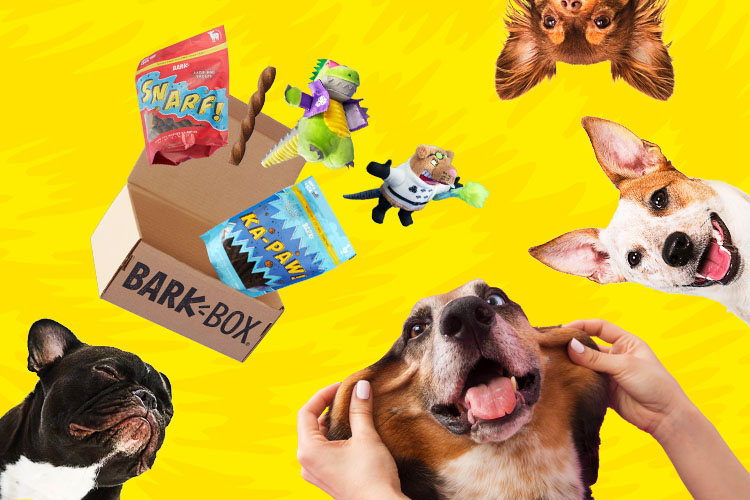
*We promote only the best information and products for our readers, we may earn an affiliate commission when you purchase through links on our website. Thank you for your support!
Join the newsletter and never miss out on dog content again!
"*" indicates required fields
By clicking the arrow, you agree to our web Terms of Use and Privacy & Cookie Policy. Easy unsubscribe links are provided in every email.
